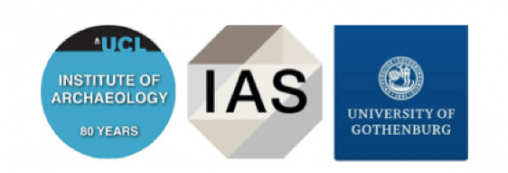Report on Symposium on Data Science and Digital Cultural Heritage
By Julianne Nyhan, on 6 March 2020
UCLDH deputy director Julianne Nyhan and UCLDH team member Tessa Hauswedell organised a workshop on the 26th/27th June 2019 on the topic of Data Science and Digital Cultural Heritage with generous funding from the UCL Grand Challenges Dynamics of Globalisation Initiative, the Centre for Critical Heritage Studies (CCHS) and UCLDH. The workshop was entitled: “Data Science and Digital Cultural Heritage Workshop: facilitating new connections between the disciplines and professions that can transform the Global Data Context”. It sought to facilitate new connections between academic disciplines and professions in order to develop a critical dialogue about the social and political implications of using the massive digital cultural heritage datasets that we increasingly rely on.
Nanna Bonde Thylstrup from the Copenhagen Business School opened the workshop with her public keynote address, entitled “Feminist Digital Humanities and the Infrapolitics of Mass Digitization”. Dr Thylstrup discussed how digital infrastructures are not neutral, inanimate objects in themselves: rather they operate as sites of power, privilege, and erasure but potentially also of contestation and critical intervention.

Dr Nanna Bonde Thylstrup, author of The Politics of Mass Digitization (MIT 2019) delivers her keynote lecture.
The ensuing workshop assembled a group of curators, archivists, information professionals from the public and private sector, together with humanities and computer science researchers, to push forward the state of the art of ‘critical data science’ in a way that foregrounds questions of culture, power and knowledge. It also sought to lay the foundations for an ongoing dialogue about this across the respective disciplines and professions. In the first of three panels, the workshop discussed recent or ongoing projects which are working with digital cultural heritage datasets such as the Scottish National Heritage Partnership, Living with Machines and the Ancient Identities project, to establish how they approach issues of bias and prejudice in the datasets they are working with and how they actively seek to mitigate these biases.
The second panel was dedicated to the question of data science and cultural heritage training: to what extent do critical perspectives feature in training and which skillsets does the next generation of archivists, humanists and curators and information professionals need to have in order to build, curate and maintain the future datasets? How do archivists and digital content providers need to rethink their archival practices in the digital age and what kind of formal training should be available to humanities researchers who want to work with big data repositories?

Dr Eirini Goudarouli, Head of Digital Research Programmes, The National Archives, delivers her intervention.
The final panel addressed the most pressing challenges in the field of data science and cultural heritage and debated what type of research development is needed in the medium to long term. Panellists addressed the lack of critical perspectives in developing fields such as AI, the lack of control over data and the lack of an ethical framework of how we store and keep data as persistent and ongoing challenges. Moreover, the privileging of infrastructure innovation and disruption creates a field in which questions of infrastructure maintenance, which are absolutely essential to the accessibility and retrievability of data, remains undervalued. The constant threat of technological obsolescence, therefore, will continue to create problems, which the field of critical data science is only slowly beginning to grapple with.
This workshop has aimed to mark the beginning of a multidisciplinary and trans-professional dialogue on the future of data science and digital cultural heritage. The aim was to identify the unique expertise that each profession can bring to the building of a ‘critical data science’ and UCLDH will continue to contribute to the development of this field through its research activities and future networking events.
Further to this, both Julianne Nyhan and Andreas Vlachidis, among other UCLDH colleagues, participate in the Turing Institute’s Humanities and Data Science group. Nyhan and Vlachidis and are contributing to a multi-autored report on the future of the Humanities and Data Science that will be out soon. An update about this will follow in due course.
 Close
Close



